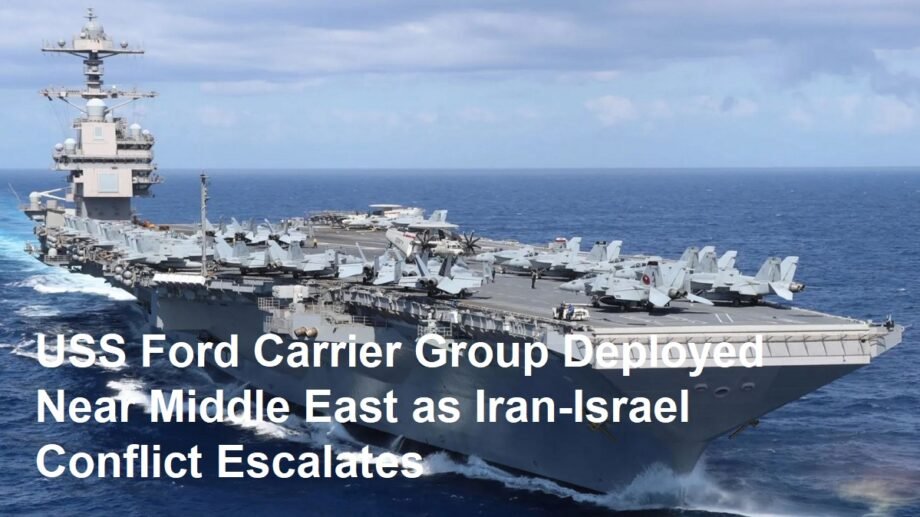Introduction
In response to escalating tensions between Iran and Israel, the United States has reportedly deployed its formidable aircraft carrier strike group, USS Ford, to the waters near the Middle East. This strategic move highlights the growing geopolitical volatility in the region, emphasizing the U.S. commitment to maintaining balance and protecting its interests and allies. Understanding the implications of this deployment is critical not only for global security watchers but also for those interested in Middle Eastern affairs.
The Strategic Importance of USS Ford in the Middle East
USS Gerald R. Ford (CVN-78) represents the latest generation of U.S. aircraft carriers, incorporating cutting-edge technologies that significantly enhance operational capabilities. Its deployment to the Middle East amid an intensifying conflict signals a robust U.S. military posture. The carrier strike group offers a powerful projection of naval air power, with capabilities to conduct airstrikes, surveillance, and rapid response operations.
This deployment serves multiple purposes: deterring further aggression, reassuring regional allies, and maintaining freedom of navigation in one of the world’s most critical maritime corridors. With Iran and Israel locked in increasing hostilities, the U.S. naval presence aims to prevent the conflict from escalating into a broader regional war.
Rising Tensions Between Iran and Israel
The Middle East has long been a flashpoint of geopolitical tensions, with Iran and Israel among the key players whose rivalry influences regional stability. In recent months, clashes and proxy confrontations have intensified, heightening fears of direct conflict. Both nations have accused each other of covert operations, missile attacks, and cyber warfare, further destabilizing an already fragile security landscape.
This escalate has drawn global attention to the necessity for de-escalation mechanisms. In this context, the arrival of the USS Ford strike group is seen as a tangible sign of U.S. readiness to engage in crisis management and conflict deterrence.
Implications for Regional and Global Security
The deployment places the U.S. Navy in a pivotal position to respond quickly should the conflict spiral out of control. It demonstrates America’s commitment to its defense treaties and highlights the strategic importance of the Middle East in global security frameworks. The waters surrounding key points such as the Strait of Hormuz—through which a significant percentage of the world’s oil supply passes—are especially critical.
Experts warn, however, that such military moves also carry risks. Increased military presence can be perceived as provocative, potentially escalating tensions further. The key challenge lies in balancing deterrence with diplomatic efforts to calm the region.
Technological Edge of USS Ford
USS Ford’s state-of-the-art systems, including electromagnetic aircraft launch systems (EMALS) and enhanced radar capabilities, make it one of the most advanced carriers in the world. These enhancements enable faster turnaround of aircraft and improved situational awareness, boosting the U.S. Navy’s ability to respond swiftly to emerging threats.
Moreover, the carrier carries a diverse air wing ranging from fighter jets to electronic warfare and surveillance aircraft, providing versatile options in dealing with multifaceted threats.
What This Means for the Future
The deployment underscores the persistent volatility of the Iran-Israel conflict and the broader geopolitical chessboard in the Middle East. It also reflects the evolving nature of naval power and its role in contemporary conflict prevention and crisis response.
While military deployment is a clear message of strength, sustainable peace remains the ultimate goal. The international community watches closely, hoping diplomatic dialogues will prevail before the situation deteriorates further.
Conclusion
The USS Ford carrier strike group’s deployment near the Middle East marks a critical juncture in the escalating Iran-Israel hostilities. This decisive move by the United States highlights its commitment to safeguarding regional stability and underscores the significance of naval power in modern geopolitical strategies. Staying informed about these developments is essential for understanding the future trajectory of Middle Eastern security and global peace.








